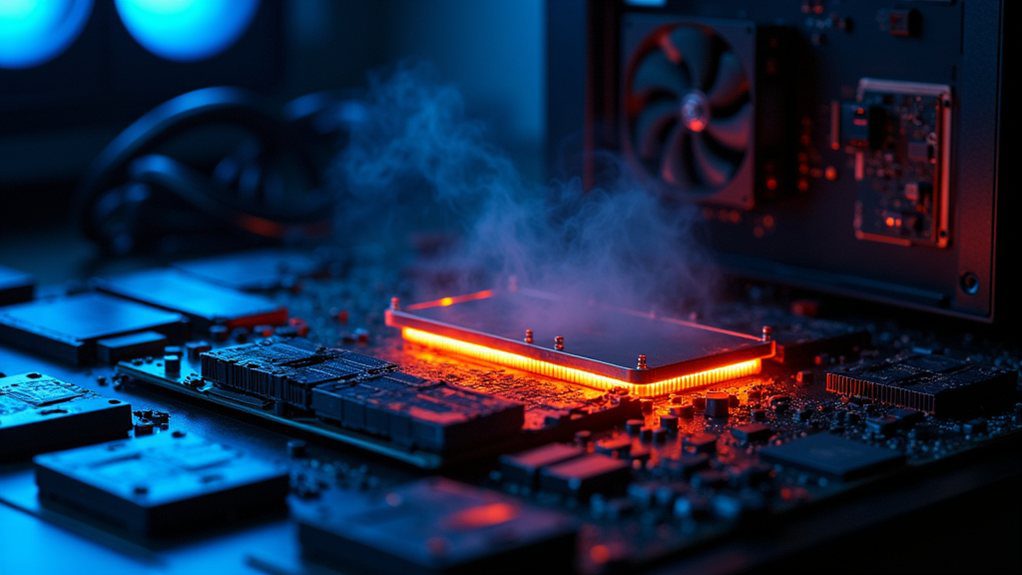Recent reports link Windows 11’s security update KB5063878 to concerning SSD failures, particularly affecting drives over 60% capacity during large file operations. As Microsoft and manufacturer Phison downplay the connection, multiple brands including Corsair, Samsung, and Western Digital show vulnerability. Heavy workloads on well-filled drives appear to trigger issues, though official investigations suggest no systemic flaw. Users should exercise caution with massive file transfers until experts uncover the full story behind these mysterious failures.

During Microsoft’s latest Windows 11 security update KB5063878, intended to patch vulnerabilities, it has inadvertently triggered a wave of SSD failures that have left some users facing data loss and system instability. The update, shipped on 12 August 2025, as part of Windows 11 24H2, has been linked to mysterious SSD disappearances and RAW format conversions, particularly during large file operations on drives operating at over 60% capacity.
Microsoft’s latest Windows update brings unwanted surprises as users report widespread SSD failures and data loss across their systems.
The issue seems to manifest primarily during intensive write operations exceeding 50GB, with gaming enthusiasts being particularly affected during the downloading of substantial updates for titles like Cyberpunk 2077 and Honkai: Star Rail. Users report symptoms ranging from File Explorer hanging to complete drive disappearance from BIOS – think of it as your SSD playing an unwanted game of hide and seek with your system. OBS-based solutions have also been reported to malfunction after installing the update. Initial reports of these issues emerged from Japanese users before spreading to other regions.
Microsoft and major SSD controller manufacturers have taken a defensive stance. The tech giant dismisses direct connections between KB5063878 and the failures, characterising the issue as a rare race condition. Phison, a prominent controller manufacturer, echoes this sentiment, suggesting that proper cooling might be more relevant than any update-related concerns. It’s the tech equivalent of “it’s not us, it’s you” – but with more technical jargon.
The problem spans across multiple SSD brands and technologies, affecting models from industry leaders like Corsair, Samsung, and Western Digital, to lesser-known manufacturers like Fikwot. Both NVMe and SATA drives have shown vulnerability, with the WD Blue SA510 (2TB) especially suffering unrecoverable failures. The common thread? Heavy workloads on well-filled drives seem to be the trigger point.
Although most affected users have managed to recover their drives through reboots or partition repairs, some have faced the digital equivalent of a total blackout – complete data loss requiring full disk wiping. The silver lining? The issue isn’t as widespread as initial reports might suggest, appearing to target specific usage patterns rather than affecting all Windows 11 users indiscriminately.
The situation raises questions about the complex relationship between operating system updates and storage hardware. Although Microsoft’s telemetry suggests no systemic flaw, the clustering of reports around specific usage patterns and controller types hints at potential firmware-level vulnerabilities that the update might be inadvertently exposing.
As investigations continue, users might want to think twice before filling their SSDs to the brim or initiating massive file transfers – at least until this digital mystery is fully solved.
Final Thoughts
While there isn’t conclusive evidence that Windows 11 updates are directly responsible for widespread SSD failures, the heightened write activity and storage optimization processes suggest a need for vigilance. It’s essential for users to back up their data regularly, monitor drive health metrics, and potentially adjust their system maintenance schedules. As SSDs become the standard for modern computing, the importance of effective storage management by Microsoft will be crucial for ensuring long-term drive reliability and maintaining user confidence.
If you’re concerned about your SSD’s performance or need assistance with data backup and drive health checks, PC Repairs North Lakes is here to help. Don’t wait for issues to arise—click on our contact us page to get in touch with our expert team today!
